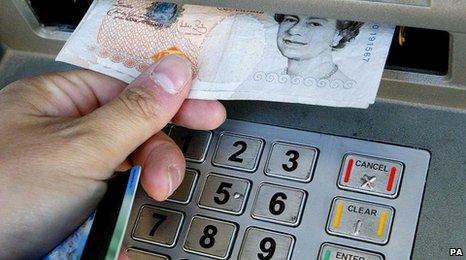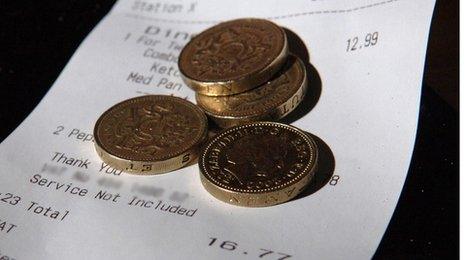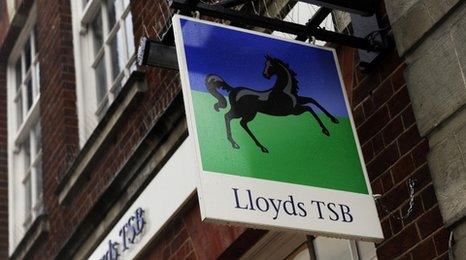Blow for customers trying to reclaim bank charges
- Published

More than a million people were hoping to be refunded, but the Supreme Court has ruled in favour of banks charging overdraft fees.
It's a big blow for customers who say they've had to unfairly fork out billions of pounds paying the fees.
The likelihood of customers getting any of their overdraft charges back is now slim.
The Office of Fair Trading (OFT) was hoping that power would be taken away from the banks, so they could look into whether overdraft charges were fair.
But the court said that the charges were all part of the 'price' of having a bank account and didn't come under consumer fairness rules.
One of the judges, Lady Hale, justified the decision: "Banks may not be the most popular institutions in the country at present.
"But that does not mean that their methods of charging for retail banking services are necessarily unfair when reviewed as a whole."
'Devastating'
Seven banks and one building society were at the centre of the row, charging customers up to £35 pounds for going over their overdraft by as little as 5p.
But not everyone agrees.
Before refund claims were frozen, some banks had already paid out more than £559 million to customers who complained about overdrafts.
There were also worries that if the ruling had gone the other way it could have meant an extra cost for those who do stay within their limits.
Some people thought monthly account fees could have been widely introduced as the banks were facing losing the £2.6bn they get each year from overdraft charges.
Campaign groups say they'll now look into other ways to take on the banks, but following the decision by the UK's highest court, that could prove difficult.
However, there may still be some changes in the coming years. The government has admitted that in the past banks "were not thinking enough about their customers".
It says it's going to work with the OFT and the Financial Services Authority to make the system fairer in the future.
- Published5 November 2009

- Published3 November 2009

- Published10 September 2009
- Published6 August 2009
- Published15 July 2009